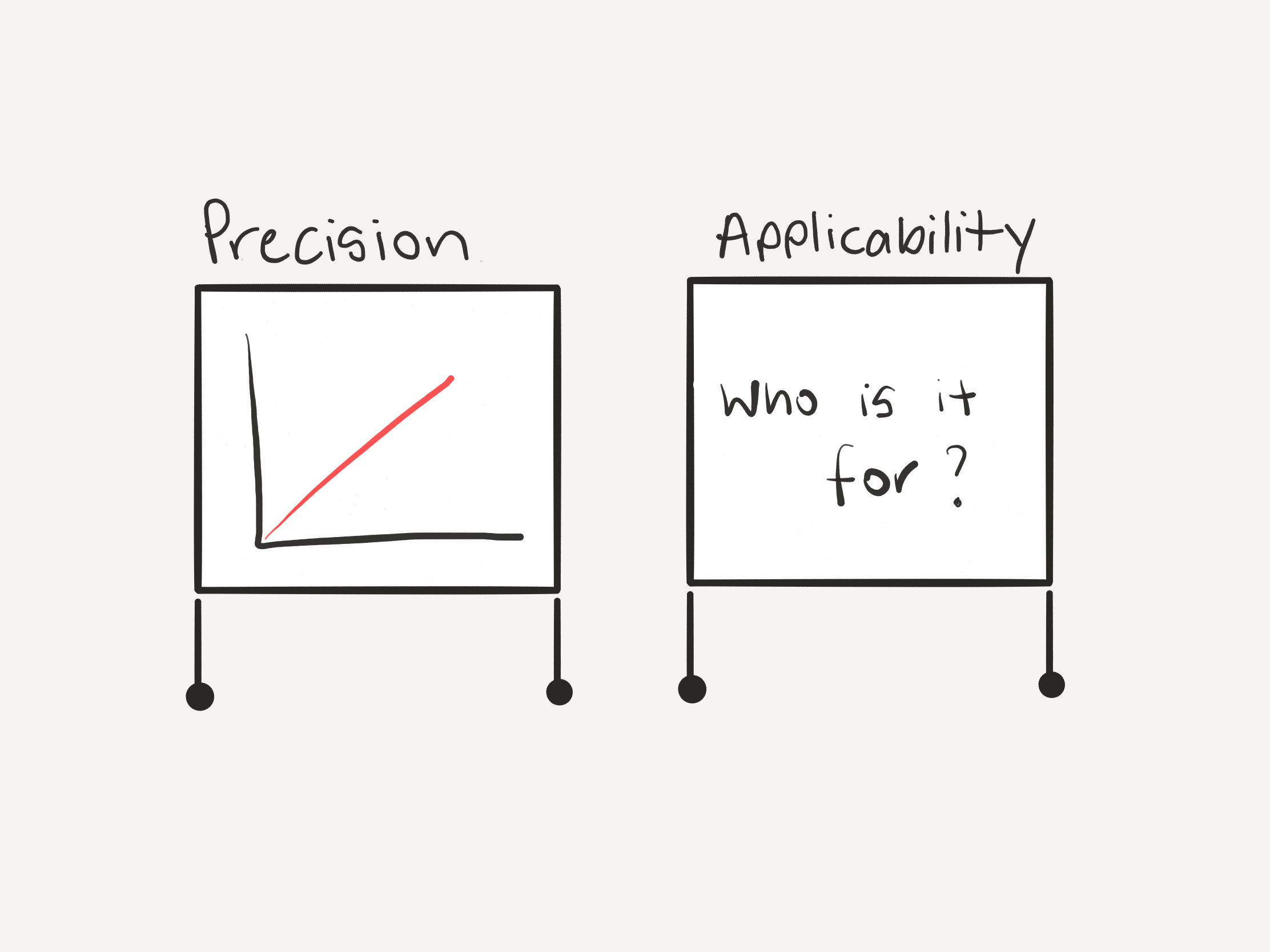Precision or applicability?

Which one are you going for? Are you trying to be perfect? Trying to be right all the time? Or are you trying to be useful?
I’ll say it until I go hoarse, it saddens me to think how many opportunities I’ve missed because I was waiting for the perfect moment. Going for precision instead of applicability.
Again, a known future is already the past. And if you already know the outcome of something, it loses its shine.
Take a scale. If it gave you a random number every day, it’s neither applicable or precise. If it gives you your exact weight every day, it’s applicable and precise. Most wait for this kind of moment. But they forget, a scale which gives you your weight a pound over every day isn’t precise but it’s still applicable. Even though whenever you step on the imprecise scale, it tells you you’re 1lb heavier than your actual weight, it still gives you an applicable measurement. Over time you can still tell whether your weight is going up or down, and that is often more important than knowing exactly what you weigh at any given moment.
Another example is the compass and the map. A map lays out a set of steps for you, a compass only gives a rough direction. The GPS on your phone finds the quickest route from one point to another despite what you know about shortcuts and scenic drives. The local cafe is a 5-minute drive from my house via GPS (the quickest possible route). But my brothers and I prefer to take the longer route, driving past the water on the way instead of heading through the middle of town. The extra 3-minutes it takes and getting a daily dose of seeing the ocean are worth it. But no GPS would ever understand this. A map is precise but when you have a compass, you know the general direction you’re going, which is often more than enough.
A fallacy of having technology on hand is how visible numbers are. Numbers have their place but too often people get caught in a similar trap to what we’ve discussed above. Because they see the numbers they get stuck trying to optimise for precision. Did this get more views? Did this get more likes? How many downloads do we have? How many patients did we see today? How can we make the graph go up and to the right? All valid questions but not when they take away from applicability. A doctor’s surgery trying to maximise and increase the number of patients they see every day looks great in the eyes of an accountant or investor but is the total opposite experience for a patient and a doctor. I wonder if anyone who invests in healthcare has ever taken the time to ask, “Why does someone go to the doctor?”.
History will show you more examples of where applicability has beaten out precision. Take the idea of replacing every meal with a liquid shake. It makes perfect logical sense if your goal is to minimise the amount of time someone spends eating, save them money on food and give them all their nutrition requirements. But this form of precise thinking forgets that besides nutrition, people eat as a form of social activity. And it’s hard to explain to others why you’re sipping on a powdered milk drink whilst they’re carving into a fresh rib-eye.
The lesson here is to two-fold. The first, it is silly to wait until all of your information sources are precise. If you are doubtful of what to do next, remind yourself. Doubt is removed by action. The second, rather than looking at everything through logic goggles, like the founders of meal replacement shake companies or those trying get more patients through the surgery doors, ask yourself the questions which would get you stares of confusion in a board meeting.
I remember doing this when working as an engineer on a new technology product. The topic of the conversation was all the features the product would have. A widget here, an option there, some more on the left. These were not the actual suggestions, the real ones had far more engineering jargon and of course, were well received as they went up on the whiteboard. When it was my turn, I didn’t suggest anything. Instead, I asked, “Who’s going to use this product?”. There were four different answers. The whiteboard was filled with precision but lacked applicability.
